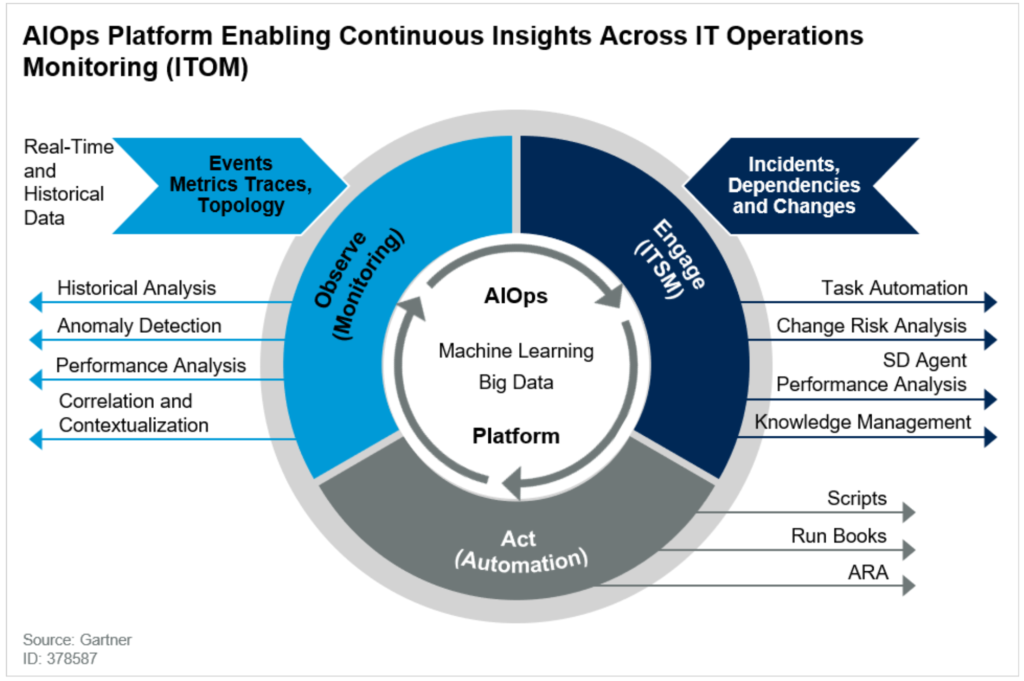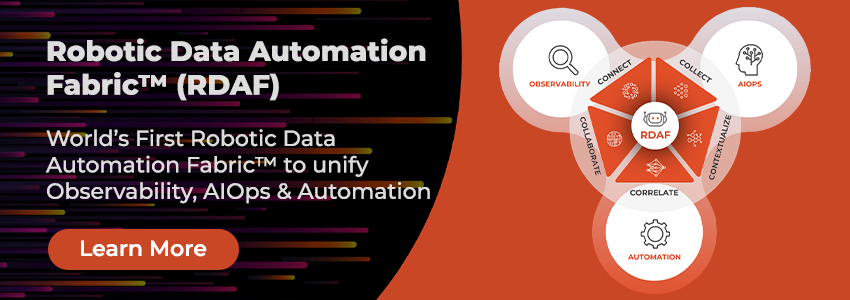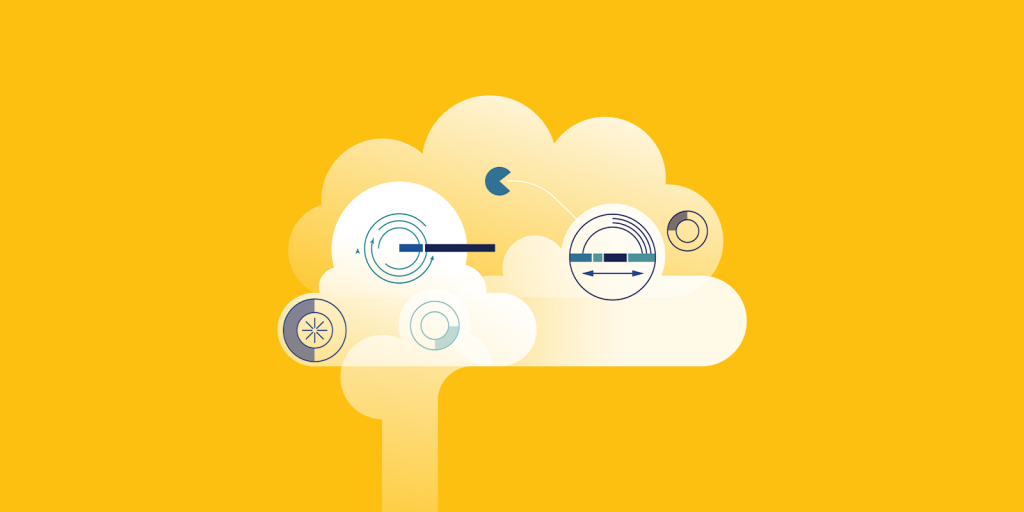What is AIOps
Artificial Intelligence for IT Operations (AIOps) is an advanced analytics and operations management solution that is designed to help organizations address the challenges of monitoring and managing IT operations in the era of digital transformation. AIOps leverages the power of Artificial Intelligence and Machine Learning Technologies to enable continuous insights across IT operations monitoring. It helps organizations to identify problems based on anomalies or deviations from normal behavior, forecast the value of certain metrics to prevent outages, reduce alert fatigue by grouping or clustering alerts, events or logs based on symptoms or text descriptions, and correlate events to extract actionable insights.
Types of AIOps Tools
AIOps solutions are categorized into two areas: 1) Domain-centric and 2) Domain-agnostic, as defined by Gartner.
Domain-centric solutions apply AIOps for a certain domain, like network monitoring, log monitoring, application monitoring, or log collection. You will often see monitoring vendors claim AIOps, but primarily they are domain-centric, bringing the power of AI to the domains they manage.
Domain-agnostic solutions operate more broadly and work across domains, monitoring, logging, cloud, infrastructure, etc., These tools operate on vast amounts of IT data ingested from all domains/tools, and they come up with models from this data to provide more accurate inferences and decisions.
Domain-centric solutions apply AIOps for a specific domain, while domain-agnostic solutions operate more broadly and work across domains, monitoring, logging, cloud, infrastructure, etc. These tools ingest vast amounts of data from various data sources and apply machine learning and anomaly detection algorithms to provide real-time insights and root cause analysis.

Data Quality and Completeness
The success of AIOps depends on the quality and completeness of data that you provide to the tool, and the more complete the data is, the better it can learn from patterns and provide inferences. If you have IT performance visibility gaps, it is first recommended to fill those gaps with a modern monitoring or observability solution like CloudFabrix Observability in a Box.
Data Preparation & Integration
It is also essential to effectively ingest, prepare or transform data and make it consumable and ready for AIOps. Some of the key challenges in data preparation & data integration activities when implementing AIOps projects are
Different environments (edge/on-prem/cloud), data formats (text/binary/JSON/XML/CSV), data delivery modes (streaming, batch, bulk, notifications), programmatic interfaces (APIs/Webhooks/Queries/CLIs). Complex data preparation activities involving integrity checks, cleaning, transforming, and shaping the data (aggregating/filtering/sorting).
Doing these activities manually is not optimal, increases cost, and delays ROI. A modern way to do this is to use data bots that can completely automate all such data tasks in AIOps.
Data Enrichment
AIOps solutions need to have an understanding of how application services and assets are related to each other so that when alerts or events arise, the tool can take into consideration these relationships to more accurately drive correlations or root cause inferences. Most implementations depend on manual or external data to feed this data to AIOps, which becomes more of a burden and becomes expensive over time to implement and maintain.
Some modern AIOps tools (like CloudFabrix) are quite good at actually discovering and establishing their application/service contextual topology by themselves and optionally they can also integrate with CMDB or IT Asset Management systems (ITAM), to use these tools either for seed context or for the automated periodic data feed.

Top 10 AIOps Use Cases:
Top use cases or problem areas that can be solved with AIOps are:
- Identifying problems based on anomalies or deviations from normal behavior
- Forecasting the value of a certain metric to prevent outages or to improve operational readiness
- Grouping or clustering alerts, events, or logs based on symptoms or text descriptions
- Correlating events to reduce noise in IT data and extract actionable events
- Deriving application or server health based on multiple sensors or telemetry data
- Identifying correlated time series metrics or symptoms for faster root cause inference
- Finding similar incidents to accelerate incident resolution
- Named entity recognition to enrich incidents for faster processing of incidents
- Predicting Incident assignment groups based on incident attributes
- Incident classification using natural language processing can also use external services like IBM Watson NLU, OpenAI/GPT-3
AIOps Goals and Key Benefits
The ultimate goal of AIOps is to enable IT transformation and let IT run in Autonomous Operations mode. With AIOps tools, IT organizations gain unified event intelligence, reduce noise in IT data and eliminate toil, reduce IT ticket volume, resolve IT problems faster, predict/prevent outages before customer impact, automate root cause analysis, accelerate incident or problem resolution, improve IT productivity, and reduce TCO.
Key AIOps benefits for Consumers of IT
- Applications stay up and perform as expected
- Better service reliability
- Better customer experience and satisfaction
Key AIOps benefits for Producers of IT
- Improved IT predictability
- Faster IT problem resolution
- Increased IT personnel productivity/efficiency
- Reduced IT operations costs (due to savings from man-hrs)
In summary, AIOps is a powerful solution that can help organizations address the challenges of monitoring and managing IT operations in the era of digital transformation. By leveraging artificial intelligence and machine learning, AIOps can provide continuous insights and real-time analytics to help organizations improve IT performance and reduce operational costs.
Now the transformation of your ITOps through AIOps is just a click away.
Get a free consultation from one of our Senior Solutions Consultants today.




